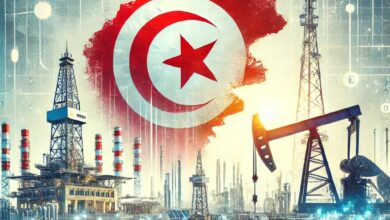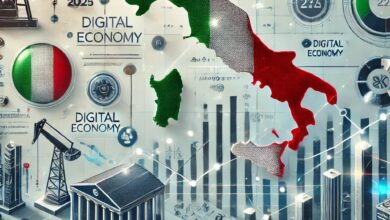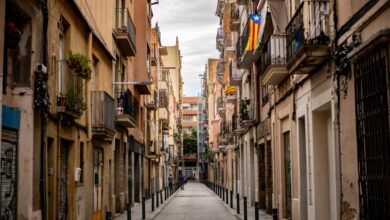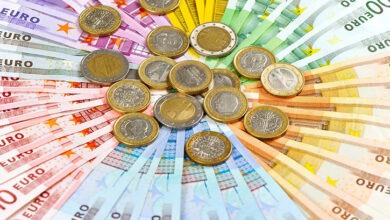Tunisia: the missing piece in Italy’s Mattei Plan

Italy’s Prime Minister Giogria Meloni has arrived today in Tunis for a brief visit during which she met with her Tunisian counterpart Najla Bouden and President Kais Saied. On the table, there were 2 of the most pressing issues for the 2 countries: immigration and Tunisia’s stalled negotiations with the International Monetary Fund (IMF).
Beyond this brief visit which does not amount to the level of an official visit, with new ruling elites in Tunis and Rome who differ from their predecessors, an opportune moment for taking bilateral relations to another level should not be missed. Italy’s PM Giorgia Meloni has often said she wants to establish a win-win partnership with Africa and Tunisia has much to offer in such partnership.
The main and obvious reason for building this partnership lies in the converging views in Tunis and Rome on the normative conduct and the conditionality of certain global monetary institutions. Tunisian and Italian leaders have set their views of international affairs within a realist political framework that emphasizes national sovereignty, interest, and rejects foreign moralism. This realist line is also espoused by Algeria, Tunisia’s neighbour and Italy’s long-time partner.
Though less important in Italian foreign policy than its neighbours, Tunisia should be of great geopolitical importance for Italy and vice versa. Lying at the heart of the Mediterranean, Tunisia is the doorway into the African continent besides being privileged by nature with two coastlines that give the country access to the East and West Mediterranean sea.
Tunisia does not have the Algerian and Libyan oil, yet it has a much richer human capital than these two countries. It has a more dynamic private sector and entrepreneurial culture than many in Africa. Its AI revolution is the most advanced in North Africa and its society is very modern. The youth tend to be trilingual and literacy rates among them approximated the 100% in 2021. Life expectancy rates in Tunisia approximate those in developed nations.
Economic liberalism has been a strategic choice in Tunisia since independence. Progressive reforms in terms of human rights came gradually regardless of the political system. With all these traits combined, the North African country secured many agreements that have made it theoretically a close ally of the West in general and of the EU in particular. In practice, however, Tunisia has rarely been treated as a close ally by the Western liberal elites in its moments of need.
Even with the political reforms introduced since the ouster of President Ben Ali in 2011, which made way for a more inclusive and participative political system, the theory that European conditionality is about the promotion of democracy and free trade to ward off the evils of uncertainty, insecurity, and war hardly applied to Tunisia.
What makes it obvious that the EU could have done better is the way the European Central Bank (ECB) bailed out Spain, Portugal, Greece, and Italy (PIGS) from default during the Eurozone crisis (2008-2016). Tunisia, with its small size, needed much less than the trillions of Euros bumped into the economies of these countries, during what the West called “democratic transition.”
The recent disagreements between Tunisia and some Western actors on different issues and the announcement made by President Kais Saied that Tunisia will not accept “the diktats” of the IMF stand witness to the fact that many Tunisians grew so hopeless in the partnership with the EU and the IMF that they would rather face the risk of a financial collapse than acquiesce to the demand to abandon welfare.
With inflation hitting 11%, the looming spectre of default due to a debt crisis that threatens the solvency of the private banks, and a food and energy crisis exacerbated by drought, Tunisia should look elsewhere for partnership or turn to EU members rather than the EU as an institution.
Few weeks ago, speaking to IFM, Mahmoud Ben Mabrouk, spokesperson of the 25 of July Movement, said China had promised Tunisia 5 billion USD, thus unleashing rumours that Tunisia might turn to the BRICS for help. In Tunisia’s situation, help should be welcomed regardless of who grants it, but the BRICS member states are distant from the Mediterranean and their conditions are not easier to comply with than those of the country’s traditional creditors. Despite the gap between some MENA countries and the EU, the latter should still remain a strategic partner.
Italy, though European, can still bridge this gap between the two banks of the Mediterranean. The Mattei Plan announced by the Italian government, with its capitalization on the failures of traditional Western foreign policy, promises to reshape the relations between the two banks of the Mediterranean Sea into a new era, if the promise of win-win relations is put into practice. The realism of Mattei Plan manifests in the avoidance of normativity and conditionality which have sometimes plagued the West’s relations with the Third World.
Tunisia is vital for Italy’s energy security because the Trans-Mediterranean Pipeline which bumps Algerian gas into Italy runs through Tunisia. The undersea electrical interconnection between Tunisia and Italy launched in late 2022 promises to turn Italy into a hub for renewable energies. The importance Meloni has accorded to Libya and Algeria needs to go through Tunisia in order to turn into reality. It can even amount to the level of quadripartite alliance between Italy, Tunisia, Algeria, and Libya, according to Tarek Kahlaoui, political analyst.
The Italians are afraid instability in Tunisia might exacerbate the problem of irregular migration. Commenting on the brevity of this low-profile visit, Mr. Kahlaoui pointed to hidden divergences on the immigration issue between Tunisia, who refuses to play the role the Mediterranean guard, and Italy, who wants more Tunisian toughness on the borders.
Even though the Italians are more interested in Tunisia’s neighbours due to their energy potential, The country’s geographic location and stalemated negotiations with the IMF tie in well with the narrative on Mattei Plan. The repetitive calls by the Italians on their Western counterparts to show more flexibility on Tunisia’s bailout attest to the desire of Italy’s leaders to avert another immigration crisis and to play the role of a political, economic, and even cultural bridge between the East and the West. PM Meloni alluded to this desire and embedded it within the Mattei Plan metaphor during her visit to India. As a doorway into Africa and the MENA, with a leadership which is at odds with some Western institutions, Tunisia should be an important protagonist in this narrative which not only involves the North African country, Italy, and the IMF but also the U.S. and the EU.
In the EU parliament, Italian MPs insisted the EU should support Tunisia in order to avoid a deeper crisis in Tunisia that risks unleashing boats of irregular immigrants on Southern Europe. Italy’s foreign minister, Antonio Tajani, announced, on the sidelines of the Foreign Affairs and Defense Council in Brussels, that Italy intends to invest €110 million ($118.4 million) in Tunisia. Tajani’s efforts to encourage easing Tunisia’s economic woes involved calls with his Algerian counterpart Ahmed Attaf, U.S. secretary of State Antony Blinken, and IMF Managing Director Kristalina Georgieva.
On May 20, 2023, spaking to the G7 leaders, Meloni urged them to take a “pragmatic approach” to Tunisia. Today, one of her objectives in Tunis was to urge President Kais Saied to show some flexibility with regards to the IMF’s conditions, according to TG7– which may explain the brevity of her visit.




